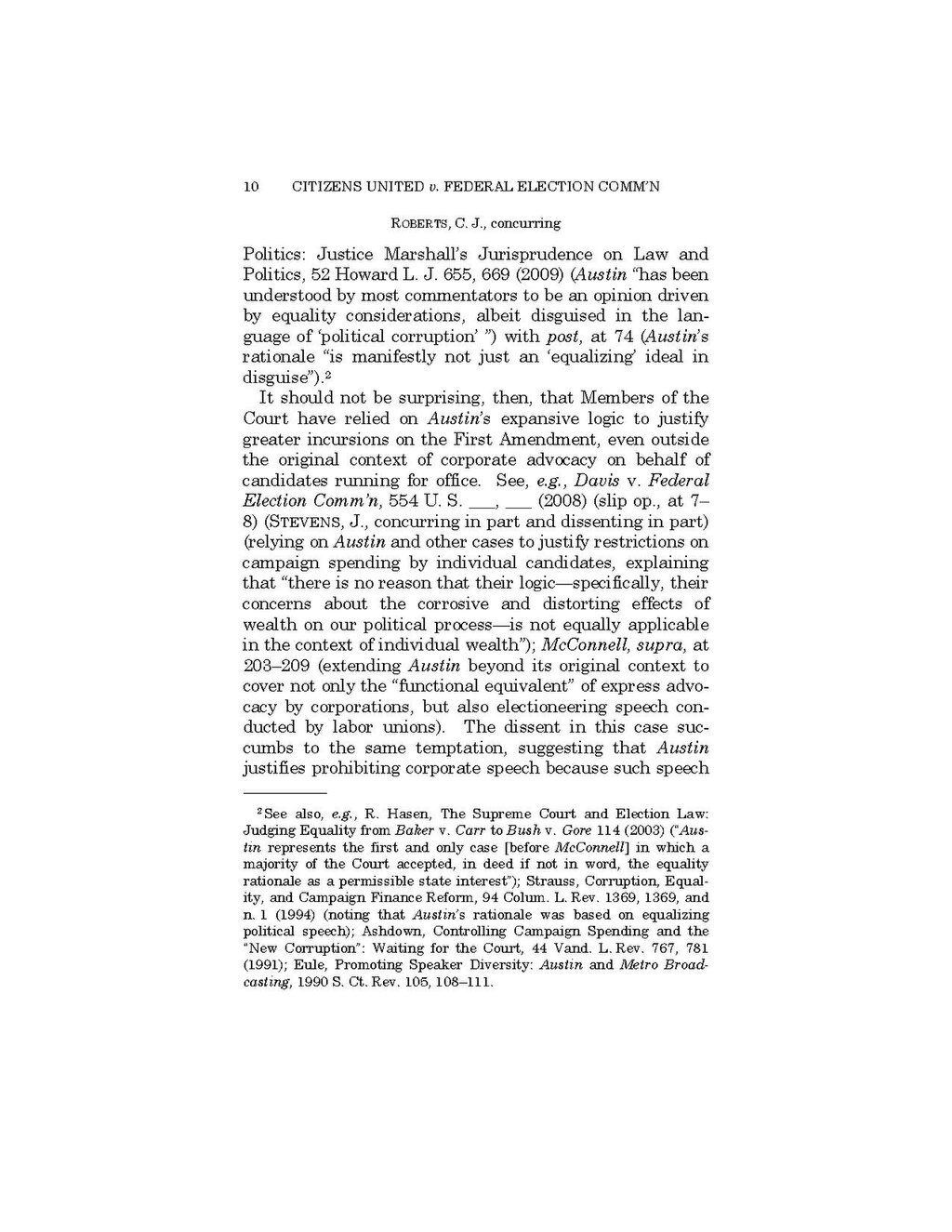Robert, C. J., concurring
Politics: Justice Marshall’s Jurisprudence on Law and Politics, 52 Howard L. J. 655, 669 (2009) (Austin “has been understood by most commentators to be an opinion driven by equality considerations, albeit disguised in the language of ‘political corruption’”) with post, at 74 (Austin’s rationale “is manifestly not just an ‘equalizing’ ideal in disguise”).[1]
It should not be surprising, then, that Members of the Court have relied on Austin’s expansive logic to justify greater incursions on the First Amendment, even outside the original context of corporate advocacy on behalf of candidates running for office. See, e.g., Davis v. Federal Election Comm’n, 554 U. S. ___, ___ (2008) (slip op., at 7–8) (STEVENS, J., concurring in part and dissenting in part) (relying on Austin and other cases to justify restrictions on campaign spending by individual candidates, explaining that “there is no reason that their logic—specifically, their concerns about the corrosive and distorting effects of wealth on our political process—is not equally applicable in the context of individual wealth”); McConnell, supra, at 203–209 (extending Austin beyond its original context to cover not only the “functional equivalent” of express advocacy by corporations, but also electioneering speech conducted by labor unions). The dissent in this case succumbs to the same temptation, suggesting that Austin justifies prohibiting corporate speech because such speech
- ↑ See also, e.g., R. Hasen, The Supreme Court and Election Law: Judging Equality from Baker v. Carr to Bush v. Gore 114 (2003) (“Austin represents the first and only case [before McConnell] in which a majority of the Court accepted, in deed if not in word, the equality rationale as a permissible state interest”); Strauss, Corruption, Equality, and Campaign Finance Reform, 94 Colum. L. Rev. 1369, 1369, and n. 1 (1994) (noting that Austin’s rationale was based on equalizing political speech); Ashdown, Controlling Campaign Spending and the “New Corruption”: Waiting for the Court, 44 Vand. L. Rev. 767, 781 (1991); Eule, Promoting Speaker Diversity: Austin and Metro Broadcasting, 1990 S. Ct. Rev. 105, 108–111.
